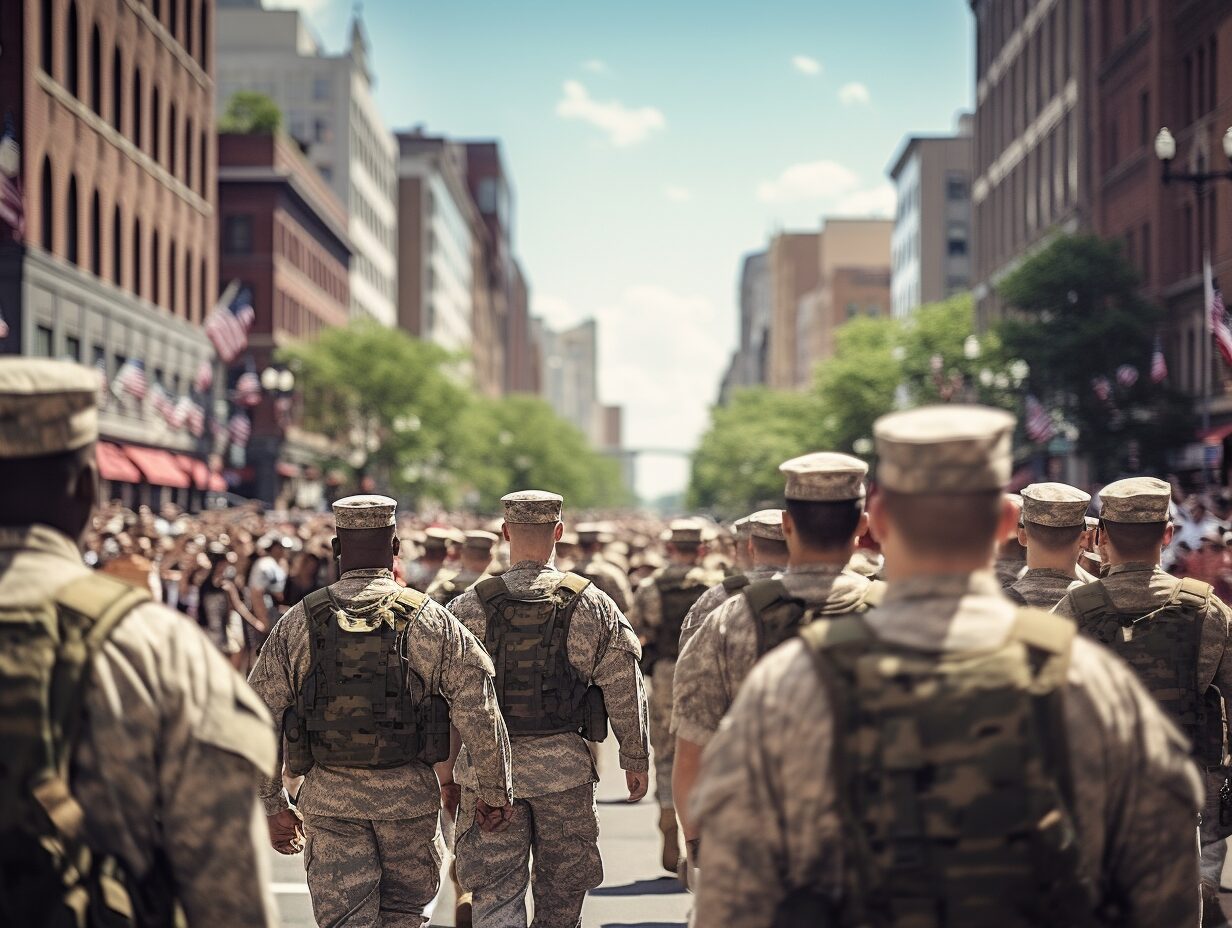If you or a loved one are on active military duty, the Servicemember’s Civil Relief Act (SCRA) can be a lifesaver. Managing finances can be especially challenging due to frequent relocations, deployments, and the unique demands of service. Recognizing these challenges, the United States government enacted SCRA. Understanding itcan be crucial to safeguarding your financial well-being.
What is the Servicemember’s Civil Relief Act (SCRA)?
The Servicemember’s Civil Relief Act is a federal law designed to ease financial and legal burdens on active-duty military members. Originally passed in 1940 as the Soldiers’ and Sailors’ Civil Relief Act, it was updated and expanded in 2003 to cover all branches of the military, including the National Guard and Reserve when activated.
The law provides protections in areas such as rental agreements, security deposits, mortgage interest rates, eviction, credit card interest rates, and civil judicial proceedings. The primary goal is to allow servicemembers to focus on their military duties without being overwhelmed by financial difficulties or legal actions that might otherwise proceed in their absence.
How Does the SCRA Affect Credit Card Holders?
One of the key financial protections under the SCRA is the limitation on interest rates for debts incurred before military service. This includes credit cards, mortgages, car loans, and other types of debt.
Under the SCRA, if a servicemember’s ability to pay is materially affected by their active duty service, the interest rate on pre-service debts—including credit card balances—cannot exceed 6% per year during the period of military service. This can result in significant savings for servicemembers, especially if they had high-interest credit card debt before deployment.
For example, if you had a credit card with an 18% interest rate before entering active duty, the SCRA allows you to request that the interest rate be reduced to 6% while you are serving. The difference in interest can be substantial, reducing financial stress during deployment or training.
What Are the Criteria for SCRA Credit Card Protections?
To be eligible for the interest rate cap on credit cards under the SCRA, the following criteria generally apply:
- The debt must have been incurred before the servicemember entered active duty. This means that only balances or debts existing prior to active service qualify for the 6% interest cap.
- The servicemember’s ability to pay must be materially affected by their military service. If you can demonstrate that active duty service impacts your ability to meet financial obligations, you qualify.
- The servicemember must provide written notice and a copy of their military orders to the credit card issuer. This is a necessary step to activate the SCRA protections on your account.
How to Use the SCRA to Reduce Your Credit Card Interest Rate
If you are an active-duty servicemember and have credit card debt from before your service, here is how you can take advantage of the SCRA protections:
- Gather Your Documentation: Obtain a copy of your military orders that show your active duty status and dates of service.
- Write a Request Letter: Contact your credit card issuer in writing. Include your full name, account number, a copy of your military orders, and a clear request for a reduction of your interest rate to 6% under the SCRA.
- Explain Your Situation: Briefly explain that your ability to pay is materially affected by your military service.
- Send the Letter via Certified Mail: This provides proof of delivery in case of future disputes.
- Follow Up: If you do not receive a response within a reasonable time, follow up with your credit card issuer. Be persistent but polite.
Once your request is approved, the credit card company must reduce your interest rate to 6% on the balance that existed before your active duty began. Any interest paid above this rate during your service should be refunded or credited to your account.
Additional SCRA Protections Related to Credit and Debt
Besides the interest rate cap, the SCRA offers other protections that can indirectly benefit credit card holders:
- Protection from Default Judgments: If you are sued for a debt while on active duty, the court may stay (postpone) the proceedings for at least 90 days if your military service materially affects your ability to appear in court.
- Limits on Foreclosures and Repossessions: While this is more relevant to mortgages and car loans, it can impact your overall financial situation and credit rating.
- Termination of Leases: If you have rental agreements or automobile leases, the SCRA allows you to terminate these agreements early without penalty if you receive orders for a permanent change of station or deployment for at least 90 days.
How Does the SCRA Impact Your Credit Score?
By reducing your interest rate and helping you avoid defaults or repossessions, the SCRA can protect your credit score during your military service. High-interest rates and missed payments can cause credit scores to plummet, which affects your ability to secure loans, housing, and other financial products in the future. The SCRA serves as a financial safety net to prevent these negative outcomes.
However, it’s important to maintain communication with your creditors and continue making payments as best as you can while on active duty. The SCRA does not eliminate debt; it reduces interest and provides some legal protections, but financial responsibility remains.
What Happens After You Leave Active Duty?
The SCRA protections last for the duration of your active duty service. Once you are no longer on active duty, the interest rate can return to the rate specified in your credit card agreement, and normal payment terms apply.
It’s a good idea to plan ahead for this change. Consider paying down your credit card balances while on active duty to minimize the impact when the interest rate returns to its original level. Also, notify your credit card issuer when your military service ends to update your account status.
Common Misconceptions About the SCRA and Credit Cards
- The SCRA automatically applies: You must actively request the interest rate reduction and provide documentation to your creditor.
- It applies to debts incurred during military service: The 6% interest rate cap only applies to debts incurred before active duty.
- It eliminates debt: The SCRA reduces interest but does not forgive or eliminate debt balances.
- It applies to all military members all the time: The protections apply during periods of active duty service only.
Resources for Servicemembers
If you need assistance understanding or applying the SCRA protections, several resources are available:
- Military Legal Assistance Offices: Many installations have legal offices that can help you understand your rights and draft letters.
- Financial Counselors: Military financial counseling services can provide guidance on managing credit card debt and benefits under the SCRA.
- Consumer Financial Protection Bureau (CFPB): The CFPB offers information and complaint filing options related to SCRA violations.
- U.S. Department of Justice: The DOJ enforces the SCRA and provides resources for servicemembers.
Takeaways
The Servicemember’s Civil Relief Act is a vital law that provides important protections for credit card holders serving in the military. By limiting interest rates to 6% on pre-service debts and offering legal protections, the SCRA helps servicemembers manage their finances while fulfilling their duties.
If you are a servicemember with existing credit card debt, take the time to understand your rights under the SCRA. Contact your credit card issuer with your military orders to request your interest rate reduction, and seek assistance if needed. These protections can ease your financial burden, allowing you to focus on your mission with greater peace of mind.
es active duty – instead that portion above 6 percent is permanently forgiven.”


Leave a Reply